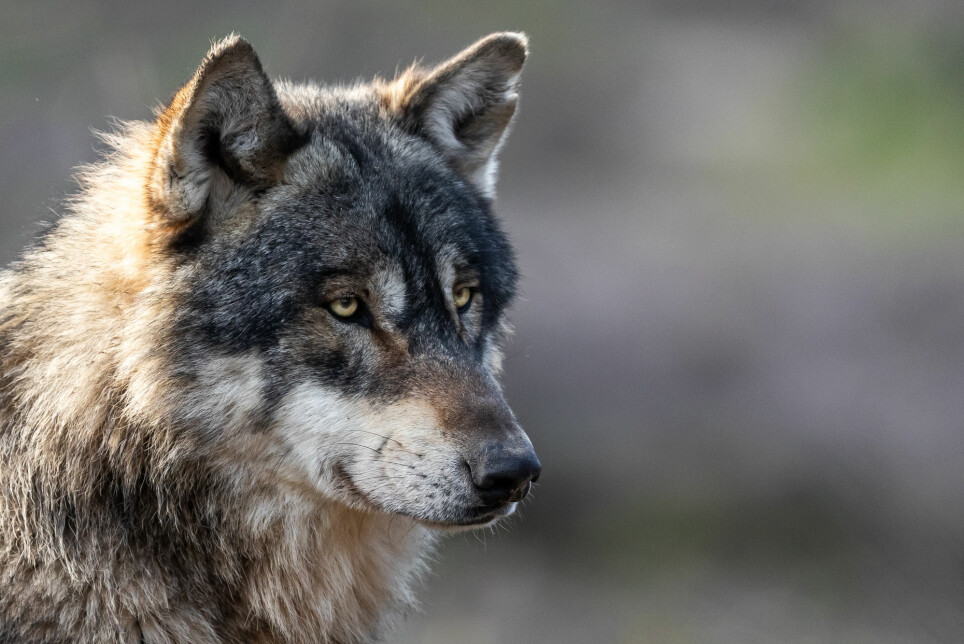
It’s not just city dwellers who like large carnivores
Norway and Sweden have seen an increase in wolf, bear, wolverine and lynx populations in recent years. Meanwhile, people’s positive attitudes towards carnivores has remained high. There are more who like them than dislike them.
Norway and Sweden have the same large carnivore species.
In Sweden, statistics indicate that their citizens’ attitudes towards these carnivores is increasingly positive. A new study finds that most Swedes have a positive view of them.
Support for carnivores in the wild has not diminished among the Norwegian population either, according to researchers. This includes rural regions and areas where people live in close proximity to large carnivores.
Wolves most controversial
Swedish researchers have been tracking the population’s views on large carnivores since 2004. They explore this topic both at a national level and across different parts of the country.
This long-term study has focused on people’s opinions of bears, wolves, wolverines and lynx. In 2020, the golden eagle was added to the study, which is carried out by the Swedish University of Agricultural Sciences (SLU) in collaboration with Umeå University and Lund University.
Researchers have discovered that among the five large carnivores, the wolf is the most controversial.
Majority approve of wolves
Nevertheless, a clear majority of Swedes regard the presence of wolves in Sweden as positive. Only 12 percent hold a negative opinion about wolves. Twenty percent express a neutral view of the animal. These figures have remained largely consistent over the years.
According to the researchers, it is not surprising that most people in the Swedish capital, Stockholm, approve of wolves. People are less positive in areas where wolf packs roam free. Even in areas with the largest concentrations of wolves, however, over 60 percent of the population remain positive about the species living in the wild.
What about Norway?
In Norway, social scientists at the Norwegian Institute for Nature Research (NINA) have, in multiple studies, asked a sample of the population what they think about the presence of wolves in Norway. The overall picture indicates that opinions have remained relatively stable over time, according to senior researcher Olve Krange.
Wolves are generally slightly less popular in Norway than in Sweden, according to a study conducted by Krange and his colleagues in 2015.
Differences between urban and rural areas
In both Sweden and Norway, there are big differences between urban and rural areas.
“In Norway, wolves are more popular in the cities than in the countryside. The same is true for Sweden, but here the gap between urban and rural areas is even greater,” says Krange.
Nevertheless, Norwegians – even those who live in rural areas – are also more likely to approve than disapprove of wolves.
The romantics are not alone
If you read a Norwegian newspaper, it is easy to get the impression that there is massive resistance against wolves in rural communities.
“But that's actually not the reality,” says Krange.
“‘Wolf lovers are not just sentimental city dwellers with a romanticised and distant view of nature,” he once wrote.
Wolf and bear encounters feared the most
In 2020, fewer Swedes reported being willing to accept wolves living in their area, only 49 percent, compared to almost 60 percent according to studies completed in 2004 and 2009.
The fear of encountering a wolf in the wild has also increased slightly in Sweden. But bears remain at the top of the list of species that people are most afraid to encounter. Over half of the people asked in the study report that they fear bear encounters. This figure has increased since 2004.
Most people approve of bears and lynx
There are far more bears in Sweden than in Norway. Figures from 2017 indicate that there are about 2,880 brown bears in Sweden. Here in Norway, only about 150 bears were recorded last year. The population has increased in both countries in recent years. Despite this, almost 80 percent of Swedes are either extremely happy or happy that the species exists in the wild in Sweden.
The lynx is also a popular carnivore in Sweden. More than eight in ten Swedes express a positive view of this species.
———































